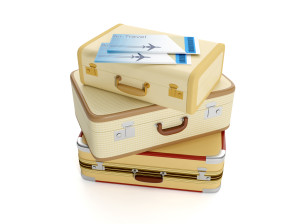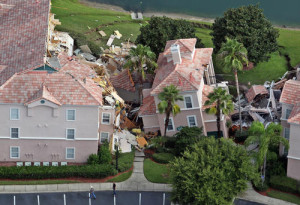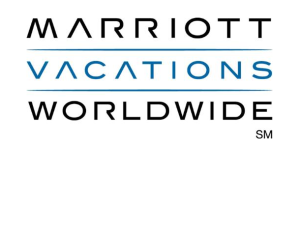Summer Bay Resort Sinkhole, Should Florida Timeshare Owners be Concerned?
Tuesday, September 3, 2013
If you are a Florida timeshare owner, you probably have already heard about the sinkhole that opened beneath two units (one building connected by a walkway) at the (Clermont) Orlando timeshare, Summer Bay Resort. If you’ve missed this, here are three updates from The Timeshare Authority that will bring you up to speed:
- Is the Orlando Summer Bay Resort Timeshare Sinkhole Growing?
- The Insurance Issue for Summer Bay Resort Timeshare Owners
- Getting to the Bottom of the Summer Bay Resort Sinkhole
Although no one was injured in the building collapse, certainly the vacationers involved experienced emotions that ranged from inconvenience to trauma. Their holidays were disrupted with the type of vacation memories that no one wants ever to experience. Many are still sorting out the personal expense they may incur, while all Summer Bay Resort owners are wondering if this catastrophic event will result in additional fees being levied on a one-time basis, or perhaps an ongoing increase in annual maintenance fees.
Answers to these questions are being sorted out, one by one. While only time will tell for sure how the Summer Bay Resort event is resolved, Florida timeshare owners in general can’t help but wonder if their timeshare could be next.
Florida Timeshare Owners: Are Sinkholes a Reason to Sell Your Timeshare?
Sinkholes are essentially any area of soil that collapses and in varying degrees, they can occur anywhere. A perfect example is the sinkhole that opened earlier this summer in Arlington, Texas, near the pitcher’s mound at Ranger’s Ballpark. It was caused by a busted water pipe under the infield and had to be repaired before the Cleveland Indians and the Texas Rangers took the field that evening.
The sinkhole at Ranger’s Ballpark is caused by our own actions and is a different category from what happened two weeks ago at the Clermont, Florida timeshare. Generally, naturally occurring sinkholes are either cover-subsidence sinkholes, which typically collapse slowly over many years or are cover-collapse sinkholes such as the Summer Bay Resort sinkhole. This second type of sinkhole also takes time to build, but appears to happen suddenly because the surface damage becomes evident abruptly when the surface soil collapses into a void that has been slowly expanding.
Because sinkholes can be induced by our own actions that involve drilling, paving, and otherwise disrupting the soil and drainage, they can, technically occur anywhere. Those that occur because of changing subsurface water levels and other natural transitions in the earth generally happen in places with a high concentration of limestone soil.
Florida, of course, sits on the top of the sinkhole vulnerable list because it literally sits on top of a shelf of limestone. But limestone can be found throughout the eastern US, with the Great Valley (of limestone) reaching from the eastern parts of New York, into Pennsylvania, through Tennessee and Alabama. Even the Ozarks in Missouri are vulnerable along with Indiana and portions of Minnesota.
Just this week, officials in Louisiana are dealing with a sinkhole that has been growing for more than a year. Covering some 25 acres in land area, the sinkhole (which has already resulted in evacuation of two towns) threatens road closure that could create a 90-minute detour for travelers, including school buses. The Assumption Parish Sinkhole is shown in this video, which captures the actual collapse of trees in a way that will probably make the hair on the back of your neck stand up.
But before you decide to put your Florida timeshare (or Louisiana timeshare) on the resale market, you need to know that east coast limestone isn’t the only soil vulnerable to sinkholes. Gypsum, found in soil strata throughout the Midwest, salt domes found in Texas, Louisiana, and Utah, and anhydrite scattered across the country are all carbonate rocks with the potential to wash away. The US Geological Survey says perhaps as much as 40 percent of the US is undermined by rock that under the right circumstances (or wrong circumstances) can collapse.
What’s a timeshare owner to do? Weigh your risks. Consider whether the nagging worry of a sinkhole collapse will put a damper on your vacation experience. Consider adding a sinkhole policy to your home owners insurance; this will help cover personal property loss in the event you ever experience a sinkhole collapse.
..And by the way, we did our research. According to multiple sources, including this map published in the New York Times, Florida doesn’t even make the Top 5 of places where you are most at risk from a natural disaster.




